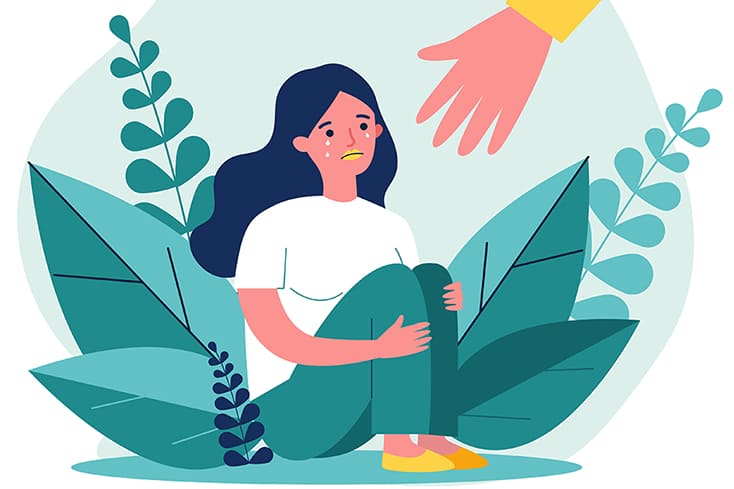August 26, 2020
By Katharine Hartleb
 I remember the first time I experienced the feeling of not being able to get out of bed. Not because I was too tired, but because I was too sad. It was during a time in my life when I was coping with a lot: My parents were getting a divorce, I had been in a car accident and one of my classmates died by suicide. At sixteen, the gravity of these events created emotions I had never dealt with before.
I remember the first time I experienced the feeling of not being able to get out of bed. Not because I was too tired, but because I was too sad. It was during a time in my life when I was coping with a lot: My parents were getting a divorce, I had been in a car accident and one of my classmates died by suicide. At sixteen, the gravity of these events created emotions I had never dealt with before.
Even after a few months, these feelings continued to get worse. Feeling increasingly withdrawn, I decided I needed professional help. My next step was seeing a psychiatrist, who diagnosed me with major depressive disorder and general anxiety disorder. I’ve never known anyone with mental illness, and I felt alone in my pain and diagnosis. My friends were having a great time in high school, yet I was struggling and felt alone.
My depression and anxiety worsened and I began having suicidal thoughts. I had a conversation with my parents about how I was feeling, but they were in denial. They did not understand why their daughter was struggling to the point of considering suicide. My parents had an old-school attitude and lacked experience dealing with mental illness. They had a hard time believing me.
After months of misery and trying to convince them, I landed in the ER and spent a week in a pediatric behavioral hospital with kids my age with similar issues. It was there that I finally met people who were experiencing the same feelings and symptoms that I was. It gave me hope that, despite their struggles, they spent time in their day to make others around them feel better.
After the hospital, I kept up with my treatment and continued to get better. I went to counseling weekly, took medication and established positive coping skills. I had to take a break from attending school twice, once in high school and once in college. These were just glitches, and I was able to reset and get back on track each time.
By making my mental health a priority, I can now deal with the small glitches that life throws at me. Luckily, my honesty and perseverance about how I was feeling allowed me to seek help early, and I am now flourishing. Through the NAMI Ending the Silence (ETS) program, I visit high schools and tell my story, so I can help others who are also struggling with mental illness and encourage them to seek help.
NAMI Ending the Silence teaches middle and high school students that mental health conditions can start when you’re young and are nothing to be ashamed of. They are legitimate health conditions. And when addressed, you can thrive in school, at home and in your community — just like anyone else.
Yes, mental health conditions aren’t planned. They aren’t easy. They aren’t simple. But they are treatable. The sooner someone gets help, the sooner they can flourish.
Katharine Hartleb is a University of South Carolina student and ETS Presenter.
We’re always accepting submissions to the NAMI Blog! We feature the latest research, stories of recovery, ways to end stigma and strategies for living well with mental illness. Most importantly: We feature your voices.
LEARN MORENAMI HelpLine is available M-F, 10 a.m. – 10 p.m. ET. Call 800-950-6264,
text “NAMI” to 62640, or email. In a crisis, call or text 988 (24/7).